Manuscript proposals: [email protected] / 0745 204 115 //// Tracking orders Individuals / Sales: 0745 200 357 / Orders Legal entities: 0721 722 783
Volume awarded with the 2nd PRIZE in the manuscript competition FULLFILL OF A DREAM, 2nd edition, Editura Universitara, 2022
Publisher: Editura Universitară
Author: V.K. Levitt
Edition: I
Pages: 340
Publisher year: 2022
ISBN: 978-606-28-1516-5
DOI: https://doi.org/10.5682/9786062815165
Product Code:
9786062815165
Do you need help?
0745 200 357
- Description
- Download (1)
- Authors
- Content
- More details
- Reviews (1)
Eric and Lia have one more year of school, but they desperately want to escape from their hometown. Everyone has their own reasons, monsters they are trying to escape.
When a mysterious girl of spectral beauty lures them to Vadu, the two follow her blindly. Despite the legend about the village and the macabre events on the road, it has a strong sense of belonging.
On the shores of the Black Sea, Vadu hides a strange community that awaits them. What two are the last to sacrifice for Alma, the last guides of the goddess.
Here, I am safe. Here, they are strong and free. They just don't have to be afraid.
And don't have mercy on them.
Greta's Universe is a book about loneliness and self-searching. About tolerance, about family communication, about relationships between generations and about the time given to the one next to you. About sexuality. About love. Eric Timofte's confession, more of a nightmare than a dream, thus acquires the value of a plea. Of himself who wants to be accepted by others as he is, with everything he has. Without being enslaved to the judgment of their gaze.
DELIA MUNTEAN
When a mysterious girl of spectral beauty lures them to Vadu, the two follow her blindly. Despite the legend about the village and the macabre events on the road, it has a strong sense of belonging.
On the shores of the Black Sea, Vadu hides a strange community that awaits them. What two are the last to sacrifice for Alma, the last guides of the goddess.
Here, I am safe. Here, they are strong and free. They just don't have to be afraid.
And don't have mercy on them.
Greta's Universe is a book about loneliness and self-searching. About tolerance, about family communication, about relationships between generations and about the time given to the one next to you. About sexuality. About love. Eric Timofte's confession, more of a nightmare than a dream, thus acquires the value of a plea. Of himself who wants to be accepted by others as he is, with everything he has. Without being enslaved to the judgment of their gaze.
DELIA MUNTEAN
-
Greta's Universe
Download
V. K. LEVITT
Foreword / 5
Peregrines / 15
Guides / 119
Locals / 235
Epilogue / 35
Peregrines / 15
Guides / 119
Locals / 235
Epilogue / 35
The author who now signs V.K. Levitt has been preparing her living in writing since she was a teenager. In 2009, when his first novel appeared, he attended a high school in Baimar. He was in a class with many girls, so many - he would reveal in his graduation speech - that he couldn't even hear his thoughts... I forewarned him then, intuiting his intellectual-affective resources (as much as he left he will see himself), a destiny under the sign of the word, especially since he had also won a national prize in a prose contest. He didn't exactly go towards Philology, but he stayed around the word. For more than a decade, I've been looking at him... Sometimes, with spite that he let dry some saps that promised specific foundations.
However, I notice that his artistic inclinations come to the fore again. V.K. Levitt was awarded in the spring of this year at the manuscript competition "Implineste un vis" (second edition, 2022), dedicated to the novel and organized by the Bucharest University Publishing House. Greta's Universe is the definitive version of the respective manuscript, revised by the author for publication. As for the volume with which he debuted, there follows, it seems, a much enriched edition, designed from the perspective of the new authorial age. This is a sign of maturity and increased awareness of what writing means.
The idea of the book was born, according to the author's confession, after an escapade at Vama Veche, around 2014, together with some friends. The first chapters of what would be a fantasy novel were written then. Over time, the book acquired a completely different configuration, V.K. Levitt abandoning the initial concept and completely changing the content of the edited sections.
As in the previous writing, the narrator-character in Greta's Universe is a teenager who learns to adjust to himself and to the world in which he lives. This time, we are witnessing the metamorphosis towards a new physical-psychological stage, marked significantly by events and human relationships that cause him suffering and that, equally, challenge him and test his vision of reality. The pretenses that Eric Timofte goes through are recorded in the first person - the mark of the sincerity of the confession - and are accompanied by subjective reflections, which betray (a veiled but discreet aspect in the first part of the novel) the attempt to interpret from within a special existential adventure of the hero, interpretation permanently placed in the mirror of alterity.
The novel is preceded by a motto, a kind of mantra that returns periodically, at key moments, throughout the work: "From the womb of the goddess, / From the eternal voice, / From the mute song, / From the tumult and dance, / From the maternal fire, / From the end and the beginning, / From the burnt lives / We are eternally reborn". The narrative is structured in three broad sections ("Pilgrims", "Guides", "Locals"), the names of which the reader will be able to interpret only after a good chunk of time. Because the book is ingeniously constructed and does not allow a comfortable reading. The reader's mind has to be in a constant state of alertness, to remember details that at first glance seem irrelevant, even verbose, and above all not to rush... There are techniques borrowed from cinematography (the flashback, for example) and the captures from mythology or from the more recent symbolic arsenal (the labyrinth, the monster, the boat, the island, the fire, the sea, the train, the drug, the hallucinatory heat, the mirror, the disease, the dream, etc.).
The complexity of the narrative strategy - due, among other things, to the mix of voices and stylistic registers, the insertion of texts (taken from social networks, from the judicial environment, from the medical field, from telephone recordings) or the alternating dream-reality-hallucination - makes the eventual jump over the sequences to alter the understanding of the whole, this all the more, as the unfolding of the facts of life and the meanderings of the subconscious is viewed from the perspective of an eccentric individual, impossible to be corseted within the frames of normality, therefore tolerated, rather rejected, marginalized. Useless. Dangerous. Eric showed an exacerbated sensitivity ("Her breath stabbed into my brain like a dove"; "My soles hit the asphalt and made a noise. I felt like I was disturbing the summer morning"; "The rays passed through her dress and body like through stained glass") . He frequently changes masks and goes through rapidly changing moods/sensations, over which he has (and does not try to have) any control, thus managing to defy established standards and change his condition in the quality of being different. Let's say it's a kind of rescue...
In addition to the biographical dimension, the story ends up with diaristic inflections in some places, so that, towards the end of the book (but before the actual epilogue), the speeches of the other actors, including the extras, all with a decisive role in solving the epic conflict, appear in the foreground.
It is relevant that both Eric and other characters who will accompany him in his existential adventure (Lia, Paul, Svoboda, Vera, Alex, Tobi etc.) share the condition of an orphan. I can think about my destiny in the absence of my family, my roots, a protective nest. However, they can easily become victims of manipulation, their vulnerability not providing them with the security necessary for normal survival. The author speculates on these particularities and knows how to exploit them for the benefit of his Romanian project. He makes his protagonist confess his own experiences in writing, with his powers and his mind, he "only" converting Eric's notes into an aesthetic product.
From the very beginning, the hero delimits his own boundaries (real, but also imaginary) - an uninhabitable, crushing and repugnant home ("At the beginning of summer, my mother lost her hair. The black curls fell first among the sheets, then they spread throughout the apartment on Magnoliei 9. They covered him and suffocated him"), a perfect reason for self-victimization ("The angel of grace that had appeared on the ceiling in the bathroom was envious of my father against me. He told him that he would I must be by his side, support him. Suffer more"; "Your eyes are big and black like hers. They have the same wild sparkle I fell in love with thirty years ago. You don't deserve her eyes, no I can bear them stuck in your selfish and petty skull. I knew that's what he was thinking") and for incriminating those around him, the real culprits ("I was the victim of a robbery. He stripped me of the only angle that belonged only to me. First, the locks they spread all over the apartment like black ivy. Then it was all over me at the camera, it overwhelmed me with the pressing imminence of death. I knew I had no right to feel this way, but I hated them both.").
They are very socio-familial which, combined with the pulverization of erotic imaginations (Lia - with whom he had fallen in love twice, "in the girls' bathroom at kindergarten" and "at the end of the eighth grade" - considers him "a helpless child", so he orients himself towards Paul), disrupts his mental order, forcing him to look for/invent other ways of being ("I would close my eyes, lay my head back and smoke. We would pretend we were characters in a movie with teenagers, We could be heroes in the background").
In fact, the confession itself seals his status as a builder - at least for a while - of another identity (a procedure which, by extension, proves to be valid in the case of the writer as well). In this way, the hero plays in his own play, according to the rules that belong to him, and he is also the one who watches and comments on the stage performance. He, not society, which seeks to impose on him a grid foreign to his being. He, not a specific authority ("excuse her, like any other god"), whose conceptions bring out from the depths rather the dangerous, terrifying posture of the personality of the teenagers under her care. Their isolation in Vadu, an abandoned village on the shore of the Black Sea - even if it is considered the only possibility of escape ("Here, no one will judge you, my dears, for what you have done! The world beyond Vadu has judged you enough. Maybe you also judged yourselves, maybe you still do!") -, will accentuate their fears and obsessions and will transform what was wanted a healing space into another kind of dungeon ("I had struggled so much to I regained my freedom, and now I couldn't do anything with it"), in a land of transition, in case of disobedience, to the world beyond ("We existed for Alma, Alma for us!"); "How long will you serve her goddess, you will be free!").
Eric and the other prisoners at one point intuit the consequences of their stay in Vadu ("I couldn't estimate how long I had been haunting the magical lands he spoke of, but I had already known worries, and fear, and death"), but they do not have the power to release The goddess Alma had brainwashed them ("let's kneel down and remember that we are here only because she is patient with us. Vadu is her land! We are all just guests!"), she had inoculated them with a state of preventive suspicion, envious of them and forcing them to hunt each other.
The real proposal advanced by V.K. Levitt through the present novel claims, equally, a reading in a different key. The presented universe (a grotesque copy of the everyday one) proves to be annihilating for the being ("I only knew that this city built us in its blocks a little bit every day"), demanding harsh, evil attitudes and behaviors. One can also find links to the communist period (to any dictatorship, after all), when the individual was not allowed to leave his pen or say what he thinks. The suffering of Eric and the others, viewed from such a perspective, actually reveals the sins of the world we live in, the social and moral dysfunctions of the end of the 20th century and the beginning of the third millennium. Maybe the courage to think differently, to deviate from the policy of the center, from the program of creating a certain human type.
It is also a book about loneliness and self-searching. About tolerance ("our high school was not a monument of empathy"); "From time to time, he glances at me out of the corner of his eye. Maybe he remembered that he loves me. It's easier for him to do it when he can't see me. In his mind is different: I'm cut, groomed, decently dressed, enrolled in law school, I'm with England"), about family communication, about relationships between generations and about the time given to the person next to you ("I realized that I don't I had stayed for years to watch my daughter closely"). About love ("Dad had told me about love once. [...] Love makes you breathe through the other, he had told me. It makes you really exist only around the other. Nothing is just yours anymore"), about sexuality.
Eric's confession, more nightmare than dream, thus acquires the valence of a plea. Of the self that wants to be accepted by others as it is, with all its own. Without being enslaved to the judgments of their gaze.
Delia Muntean
However, I notice that his artistic inclinations come to the fore again. V.K. Levitt was awarded in the spring of this year at the manuscript competition "Implineste un vis" (second edition, 2022), dedicated to the novel and organized by the Bucharest University Publishing House. Greta's Universe is the definitive version of the respective manuscript, revised by the author for publication. As for the volume with which he debuted, there follows, it seems, a much enriched edition, designed from the perspective of the new authorial age. This is a sign of maturity and increased awareness of what writing means.
The idea of the book was born, according to the author's confession, after an escapade at Vama Veche, around 2014, together with some friends. The first chapters of what would be a fantasy novel were written then. Over time, the book acquired a completely different configuration, V.K. Levitt abandoning the initial concept and completely changing the content of the edited sections.
As in the previous writing, the narrator-character in Greta's Universe is a teenager who learns to adjust to himself and to the world in which he lives. This time, we are witnessing the metamorphosis towards a new physical-psychological stage, marked significantly by events and human relationships that cause him suffering and that, equally, challenge him and test his vision of reality. The pretenses that Eric Timofte goes through are recorded in the first person - the mark of the sincerity of the confession - and are accompanied by subjective reflections, which betray (a veiled but discreet aspect in the first part of the novel) the attempt to interpret from within a special existential adventure of the hero, interpretation permanently placed in the mirror of alterity.
The novel is preceded by a motto, a kind of mantra that returns periodically, at key moments, throughout the work: "From the womb of the goddess, / From the eternal voice, / From the mute song, / From the tumult and dance, / From the maternal fire, / From the end and the beginning, / From the burnt lives / We are eternally reborn". The narrative is structured in three broad sections ("Pilgrims", "Guides", "Locals"), the names of which the reader will be able to interpret only after a good chunk of time. Because the book is ingeniously constructed and does not allow a comfortable reading. The reader's mind has to be in a constant state of alertness, to remember details that at first glance seem irrelevant, even verbose, and above all not to rush... There are techniques borrowed from cinematography (the flashback, for example) and the captures from mythology or from the more recent symbolic arsenal (the labyrinth, the monster, the boat, the island, the fire, the sea, the train, the drug, the hallucinatory heat, the mirror, the disease, the dream, etc.).
The complexity of the narrative strategy - due, among other things, to the mix of voices and stylistic registers, the insertion of texts (taken from social networks, from the judicial environment, from the medical field, from telephone recordings) or the alternating dream-reality-hallucination - makes the eventual jump over the sequences to alter the understanding of the whole, this all the more, as the unfolding of the facts of life and the meanderings of the subconscious is viewed from the perspective of an eccentric individual, impossible to be corseted within the frames of normality, therefore tolerated, rather rejected, marginalized. Useless. Dangerous. Eric showed an exacerbated sensitivity ("Her breath stabbed into my brain like a dove"; "My soles hit the asphalt and made a noise. I felt like I was disturbing the summer morning"; "The rays passed through her dress and body like through stained glass") . He frequently changes masks and goes through rapidly changing moods/sensations, over which he has (and does not try to have) any control, thus managing to defy established standards and change his condition in the quality of being different. Let's say it's a kind of rescue...
In addition to the biographical dimension, the story ends up with diaristic inflections in some places, so that, towards the end of the book (but before the actual epilogue), the speeches of the other actors, including the extras, all with a decisive role in solving the epic conflict, appear in the foreground.
It is relevant that both Eric and other characters who will accompany him in his existential adventure (Lia, Paul, Svoboda, Vera, Alex, Tobi etc.) share the condition of an orphan. I can think about my destiny in the absence of my family, my roots, a protective nest. However, they can easily become victims of manipulation, their vulnerability not providing them with the security necessary for normal survival. The author speculates on these particularities and knows how to exploit them for the benefit of his Romanian project. He makes his protagonist confess his own experiences in writing, with his powers and his mind, he "only" converting Eric's notes into an aesthetic product.
From the very beginning, the hero delimits his own boundaries (real, but also imaginary) - an uninhabitable, crushing and repugnant home ("At the beginning of summer, my mother lost her hair. The black curls fell first among the sheets, then they spread throughout the apartment on Magnoliei 9. They covered him and suffocated him"), a perfect reason for self-victimization ("The angel of grace that had appeared on the ceiling in the bathroom was envious of my father against me. He told him that he would I must be by his side, support him. Suffer more"; "Your eyes are big and black like hers. They have the same wild sparkle I fell in love with thirty years ago. You don't deserve her eyes, no I can bear them stuck in your selfish and petty skull. I knew that's what he was thinking") and for incriminating those around him, the real culprits ("I was the victim of a robbery. He stripped me of the only angle that belonged only to me. First, the locks they spread all over the apartment like black ivy. Then it was all over me at the camera, it overwhelmed me with the pressing imminence of death. I knew I had no right to feel this way, but I hated them both.").
They are very socio-familial which, combined with the pulverization of erotic imaginations (Lia - with whom he had fallen in love twice, "in the girls' bathroom at kindergarten" and "at the end of the eighth grade" - considers him "a helpless child", so he orients himself towards Paul), disrupts his mental order, forcing him to look for/invent other ways of being ("I would close my eyes, lay my head back and smoke. We would pretend we were characters in a movie with teenagers, We could be heroes in the background").
In fact, the confession itself seals his status as a builder - at least for a while - of another identity (a procedure which, by extension, proves to be valid in the case of the writer as well). In this way, the hero plays in his own play, according to the rules that belong to him, and he is also the one who watches and comments on the stage performance. He, not society, which seeks to impose on him a grid foreign to his being. He, not a specific authority ("excuse her, like any other god"), whose conceptions bring out from the depths rather the dangerous, terrifying posture of the personality of the teenagers under her care. Their isolation in Vadu, an abandoned village on the shore of the Black Sea - even if it is considered the only possibility of escape ("Here, no one will judge you, my dears, for what you have done! The world beyond Vadu has judged you enough. Maybe you also judged yourselves, maybe you still do!") -, will accentuate their fears and obsessions and will transform what was wanted a healing space into another kind of dungeon ("I had struggled so much to I regained my freedom, and now I couldn't do anything with it"), in a land of transition, in case of disobedience, to the world beyond ("We existed for Alma, Alma for us!"); "How long will you serve her goddess, you will be free!").
Eric and the other prisoners at one point intuit the consequences of their stay in Vadu ("I couldn't estimate how long I had been haunting the magical lands he spoke of, but I had already known worries, and fear, and death"), but they do not have the power to release The goddess Alma had brainwashed them ("let's kneel down and remember that we are here only because she is patient with us. Vadu is her land! We are all just guests!"), she had inoculated them with a state of preventive suspicion, envious of them and forcing them to hunt each other.
The real proposal advanced by V.K. Levitt through the present novel claims, equally, a reading in a different key. The presented universe (a grotesque copy of the everyday one) proves to be annihilating for the being ("I only knew that this city built us in its blocks a little bit every day"), demanding harsh, evil attitudes and behaviors. One can also find links to the communist period (to any dictatorship, after all), when the individual was not allowed to leave his pen or say what he thinks. The suffering of Eric and the others, viewed from such a perspective, actually reveals the sins of the world we live in, the social and moral dysfunctions of the end of the 20th century and the beginning of the third millennium. Maybe the courage to think differently, to deviate from the policy of the center, from the program of creating a certain human type.
It is also a book about loneliness and self-searching. About tolerance ("our high school was not a monument of empathy"); "From time to time, he glances at me out of the corner of his eye. Maybe he remembered that he loves me. It's easier for him to do it when he can't see me. In his mind is different: I'm cut, groomed, decently dressed, enrolled in law school, I'm with England"), about family communication, about relationships between generations and about the time given to the person next to you ("I realized that I don't I had stayed for years to watch my daughter closely"). About love ("Dad had told me about love once. [...] Love makes you breathe through the other, he had told me. It makes you really exist only around the other. Nothing is just yours anymore"), about sexuality.
Eric's confession, more nightmare than dream, thus acquires the valence of a plea. Of the self that wants to be accepted by others as it is, with all its own. Without being enslaved to the judgments of their gaze.
Delia Muntean
If you want to express your opinion about this product you can add a review.

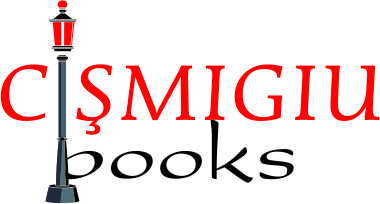
![Greta's Universe - V.K. Levitt [1] Greta's Universe - V.K. Levitt [1]](https://gomagcdn.ro/domains/editurauniversitara.ro/files/product/large/universul-gretei-356468.jpg)
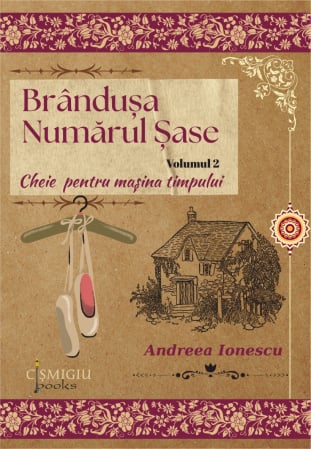
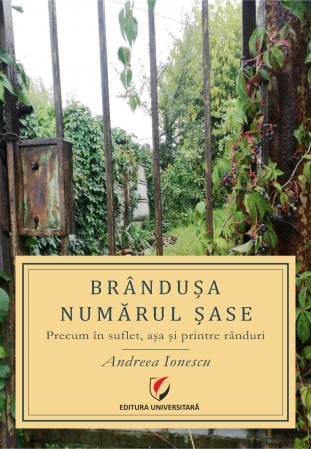
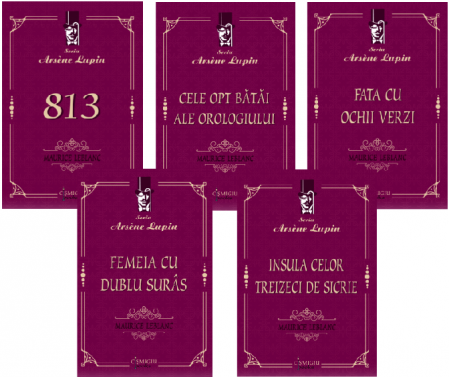
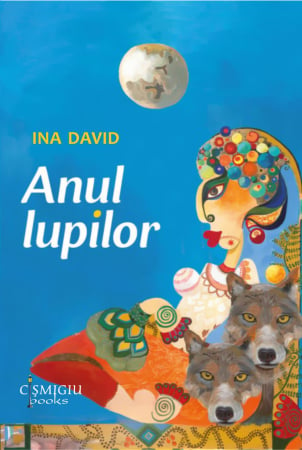


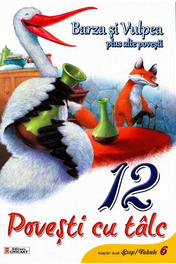
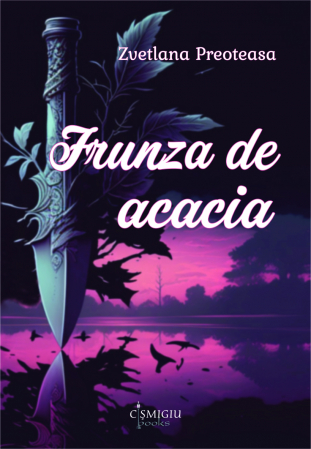
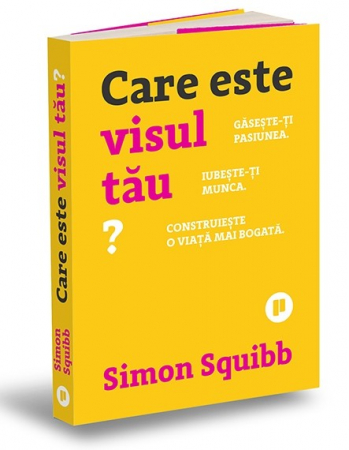
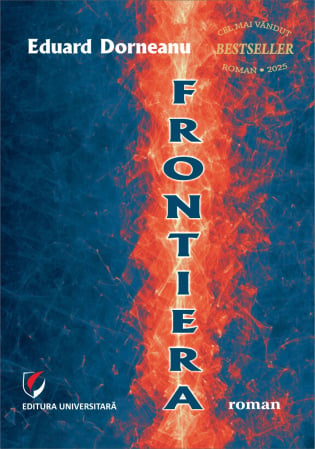
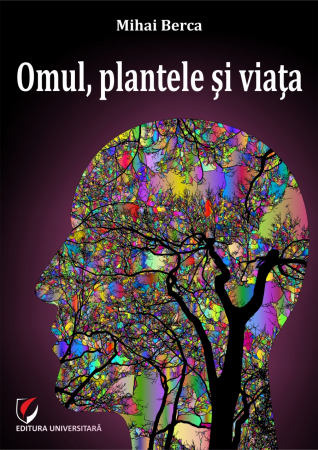
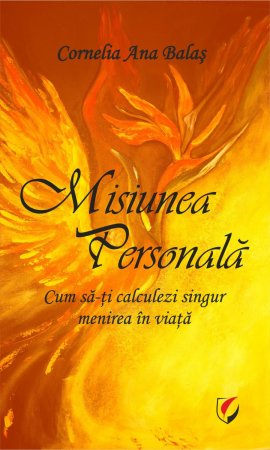



George,
Arata interesant. Se poate adauga o descriere?
ReplyWas this review useful?